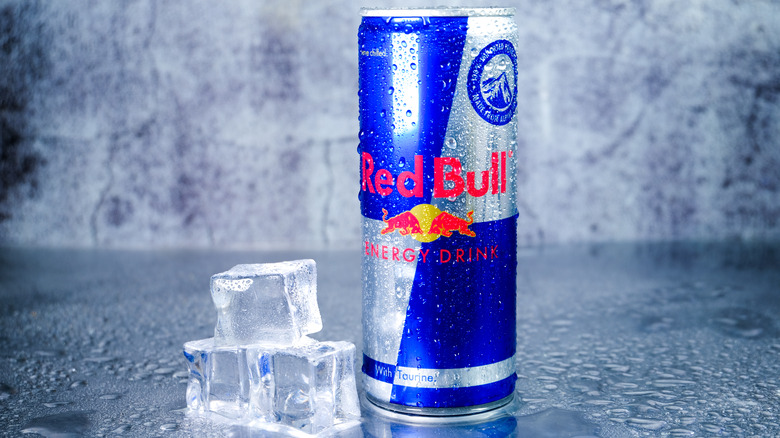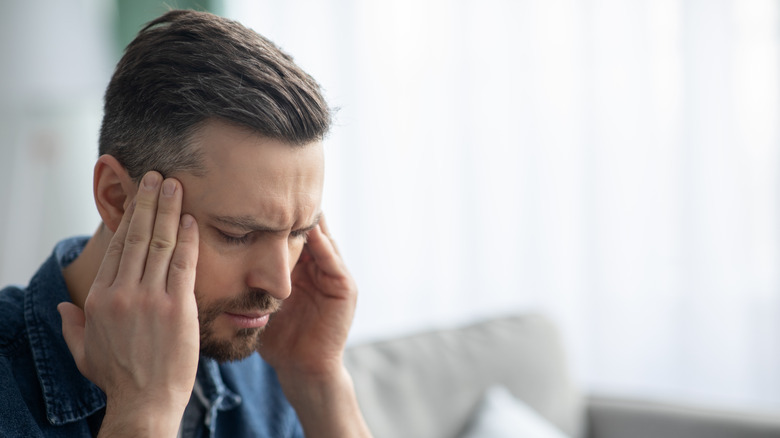This Is What Happens When You Stop Drinking Energy Drinks
Between work, school, family, and friends, many of us lead busy lives. With sleep often pushed aside to make enough time for our to-do lists, many of us also seek out ways to boost our energy levels during long days. Energy drinks are an affordable and tasty way to get a kick of caffeine during the day, but they come with a long list of side effects. According to US News, most energy drinks contain a combination of caffeine, sugar or artificial sweeteners, carbonated water, B vitamins, added colorings, and supplements like taurine and carnitine.
Megan Wroe, manager and registered dietitian for St. Jude Wellness Center in Brea, California, doesn't believe that energy drinks should be consumed regularly. "If someone has one of these drinks on a very rare occasion, that singular act will likely not do much, if any, damage. But over time, there are lots of potential complications," she said. Most energy drinks are not well-regulated by the US Food and Drug Administration, which means it can be difficult to tell how much of each ingredient you're really consuming in each drink. This can lead to drinking more than the recommended 400 milligrams of caffeine per day without realizing it. Drinking too much caffeine can cause jitters, headaches, anxiety, restlessness, and more negative side effects.
What to know about energy drink addiction
Enjoying the occasional energy drink won't cause major harm, but relying on one or more each day can cause you to become addicted. According to Healthline, addiction refers to the "psychological condition that involves an ongoing desire to use a substance or engage in a behavior, despite its negative consequences." Caffeine and sugar are both considered habit-forming substances and can lead to addiction when consumed regularly. If you find that you can't get through the day without one or more energy drinks, you may have an addiction.
When you stop drinking energy drinks, your body will likely go through withdrawal symptoms. These may include fatigue, headaches, poor mood, and difficulty concentrating. You can make the process of quitting energy drinks easier by replacing the drinks with lower-caffeine alternatives like tea or fruit-infused water. If you're having trouble reducing your energy drink intake, speak with a healthcare provider about your concerns. They can help you find better-for-you alternatives to sugar- and caffeine-loaded drinks.


